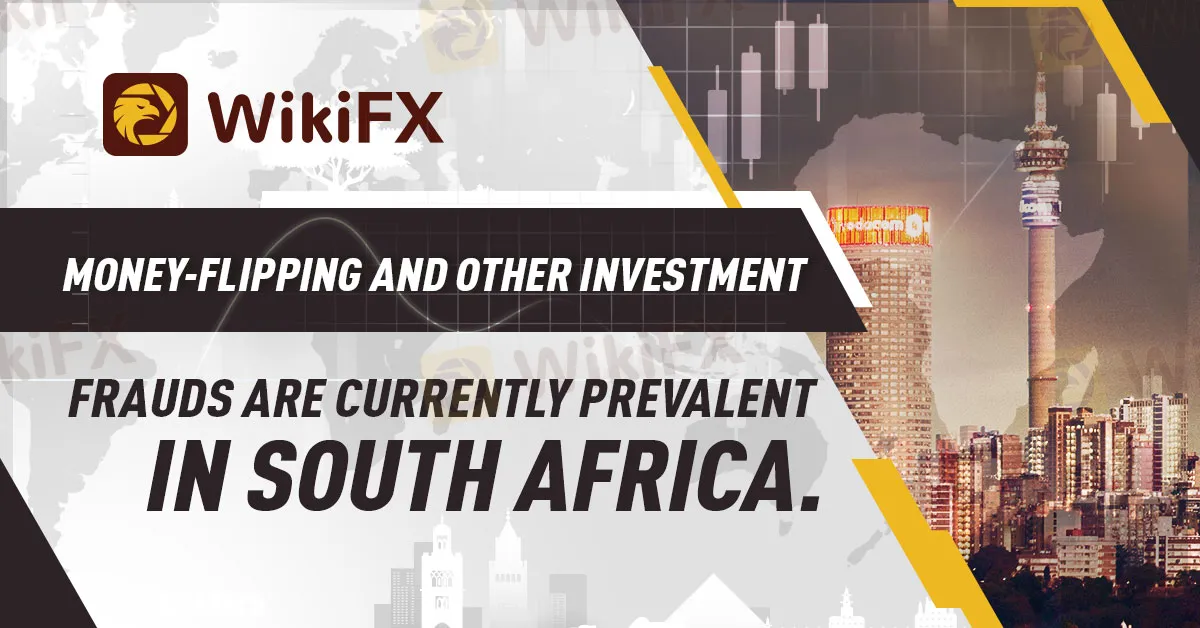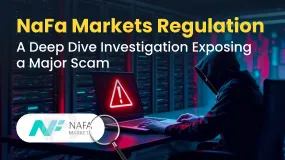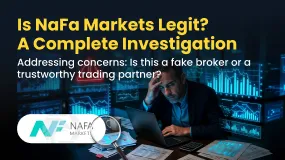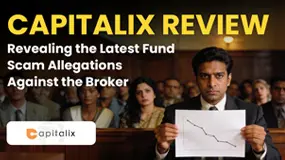Abstract:Since the beginning of 2022, there has been a plethora of news about an assault of investment scams, from well-known Netflix series that glorify the audacious exploits of "swindlers" to local reports about opportunists that fleece both individuals and corporations.

Since the beginning of 2022, there has been a plethora of news about an assault of investment scams, from well-known Netflix series that glorify the audacious exploits of “swindlers” to local reports about opportunists that fleece both individuals and corporations.
The South African Banking Risk Information Centre (SABRIC) estimates that in 2020, South Africans lost more than R1.5 billion as a result of card and banking fraud alone (the latest available data). That figure is probably much greater if you factor in other frauds and victims who are too embarrassed to confess being the target.
A South African man is accused of defrauding over 600 investors, some of whom lost more than R1 million, after making promises that they could double their money in three months by trading foreign exchange, according to the Financial Sector Conduct Authority (FSCA).
“Shocking gasoline price rises and food price increases have had a significant negative financial impact on consumers. We are more vulnerable to phony ”special deals and get-rich-quick scams because of these reasons and our need for speedy results, according to Phiko Peter, a customer relationship manager at Allan Gray.
On top of that, technology has increased access to instant investing. Unfortunately, scammers are modernizing age-old tricks for the internet and exploiting online platforms to defraud their victims.
Peter included some of the most prevalent investment frauds taking place in South Africa at the moment below.
modern pyramid plan
The scam is largely the same, but social media's growth has made it simpler for con artists to reach social networks: A seductive con artist pitches an incredible financial opportunity with tremendous returns to a select number of investors.
Then, each investor is urged to join up and bring in other investors (friends, family, acquaintances, and colleagues). As a result of their recruitment of other investors, the fraudster rises to the top of a multi-level pyramid system.
Investors may first see excellent profits and be able to firmly reassure potential hires that the investment will pay off. These plans, however, cannot be maintained. The plan is unable to provide returns to its investors once the supply of new investors and further investments runs out. As a result, the scheme will eventually fail, leaving investors with irreparable capital losses.
These scams are carried out in the digital era on messaging services like WhatsApp, which has been helpful for con artists since it allows them to now communicate effectively and promote recruiting with some degree of anonymity. Digital payments enable these systems to function effectively. It's too late by the time the plan falls apart and the truth comes out.
The money-transfer fraud
Through social media sites like Facebook, Twitter, and Instagram, money-flipping frauds have defrauded several local investors. These frauds make the outrageous claim that they can quickly quadruple or treble your money.
Victims are persuaded to pay money to a con artist who assures them of high returns in exchange for a little fee. These investment possibilities are frequently marketed as FX trading, binary option, or offshore property opportunities in South Africa.
A con artist would establish an authentic-looking social media profile exhibiting exotic trip locations, pricey automobiles, and designer apparel in order to carry out this fraud via social media.
These lavish lifestyle pictures are designed to portray the con artist as an accomplished and reliable investment. To appeal to investors' needs for rapid satisfaction and sell investors the dream, some people even brag about working for less than an hour every day.
Once a victim has been seduced, con artists may even provide thorough investment records to demonstrate the growth of the victim's funds and persuade them to make bigger bets. The moment an investor wants a withdrawal, they are greeted with a variety of obstacles and can even be required to pay additional money to get their money out.
The con artist keeps doing this up until they deactivate their account and stop communicating.
Pay attention to these warning signs
While many of us think we could never fall for these very obvious frauds, the truth is that even the best among us may fall for them. You are not the only one who has had money stolen from you by a scam artist in South Africa. According to studies, even those who are more financially knowledgeable may be susceptible to fraud in stressful circumstances.
How therefore may your investment strategy be made scam-proof? There are, in fact, no fast routes to creating lasting riches. Top warning signs to watch out for while thinking about a new investment are as follows:
A pyramid scheme is an investment where you must find new investors to receive a return on your investment. Watch out for investments with levels or tiers that categorize investors (e.g., bronze, silver, gold, platinum and diamond).
If there are no obvious underlying assets and you don't understand how an investment product earns its profits, you should proceed with caution.
In order to reduce the amount of time you spend learning about and considering the possible investment, fraudsters try to instill a sense of urgency. Avoid anything marketed as a “once-in-a-lifetime chance.”
You should take into account financial service providers with respectable track records even if previous success does not guarantee future profits. The majority of frauds make big return claims without any track record to support them.
The investment is not regulated if it is not registered with an established financial organization, such as the FSCA. You should also contact financial organizations to verify the registration of any financial business that is relatively young or not well established.
It still holds true that if something looks too good to be true, it generally is. Someone is definitely a con artist if they play on your emotions in order to defraud you. Having faith in your instincts can assist you prevent lasting capital loss.










